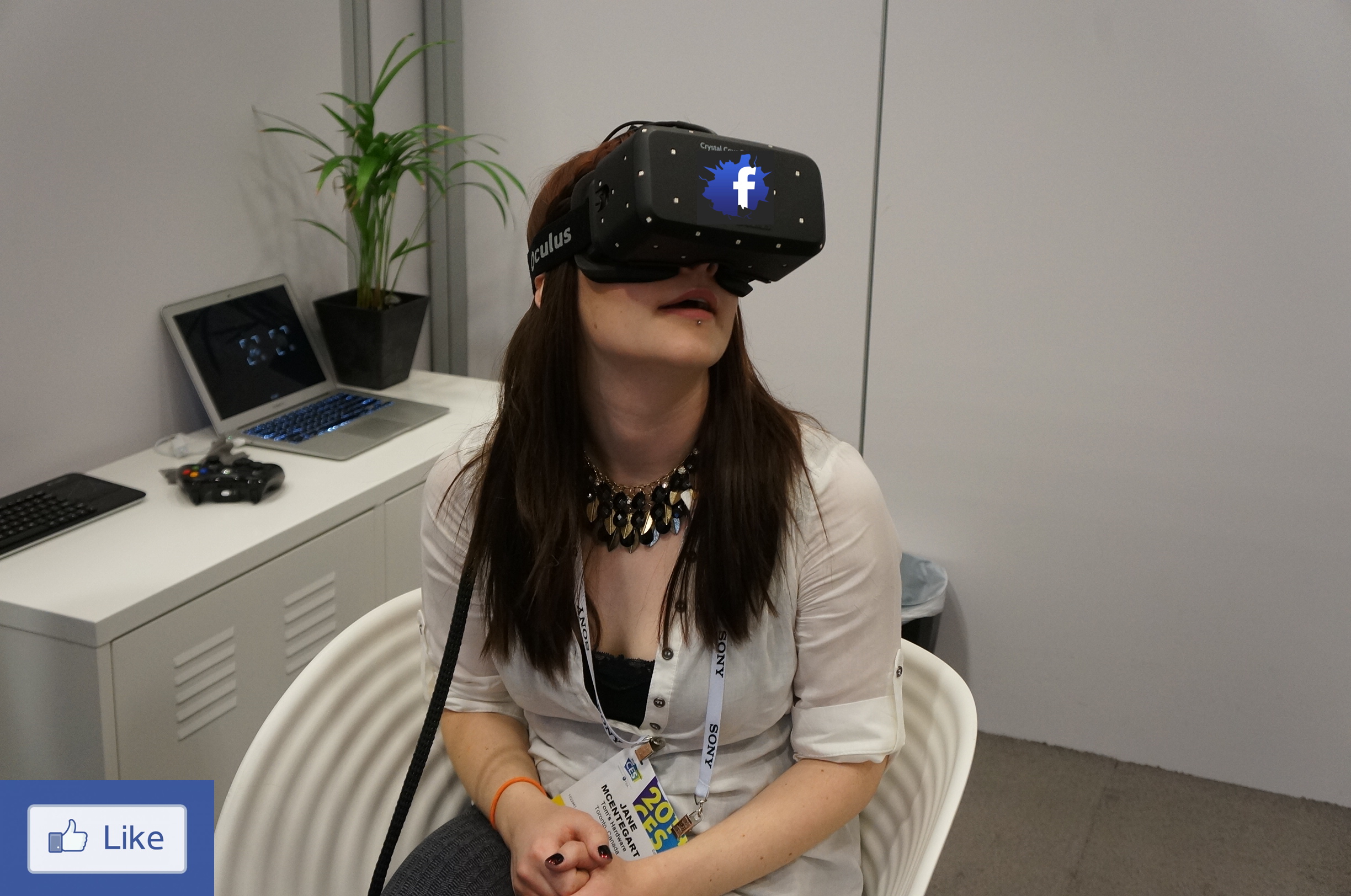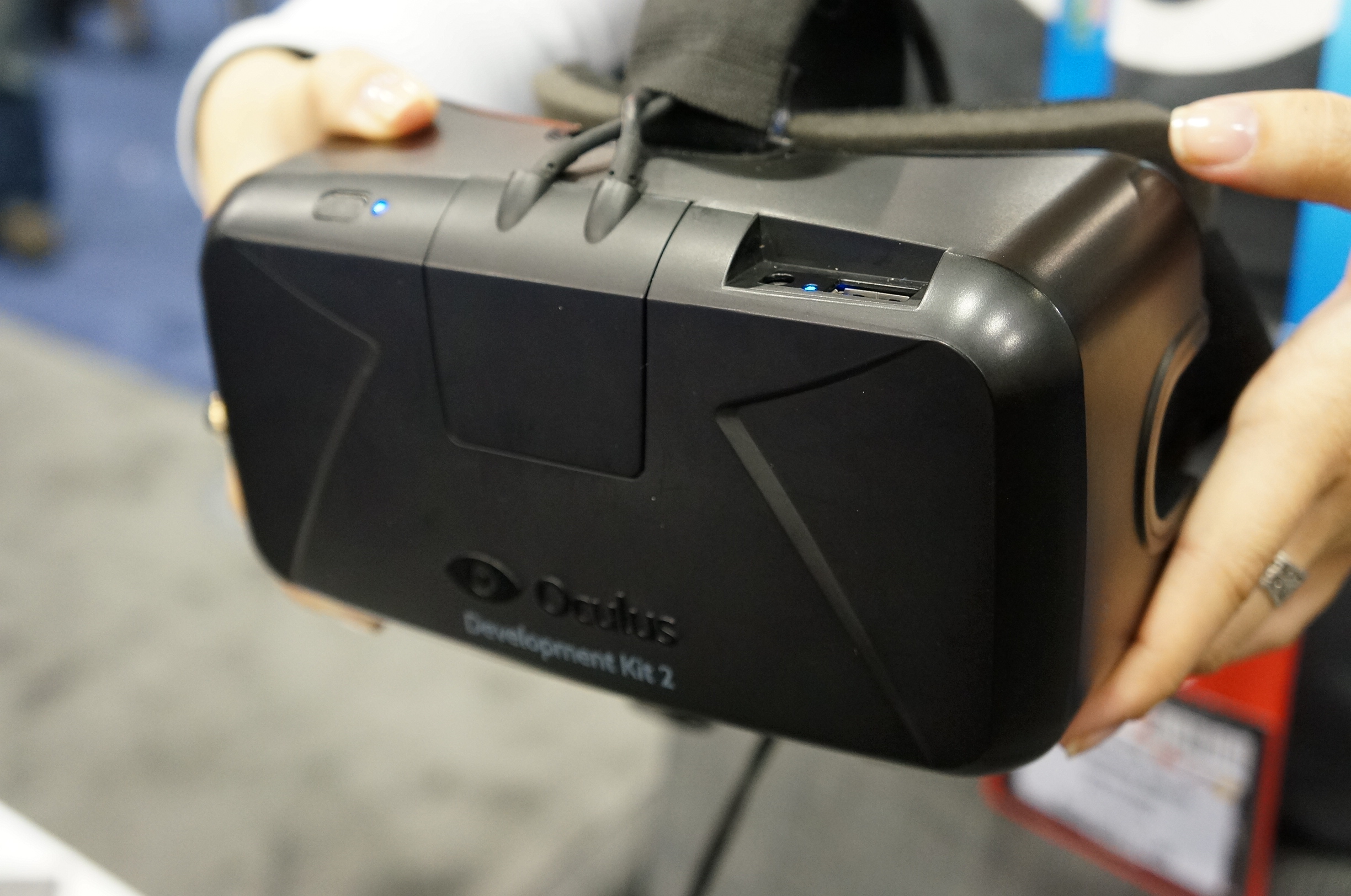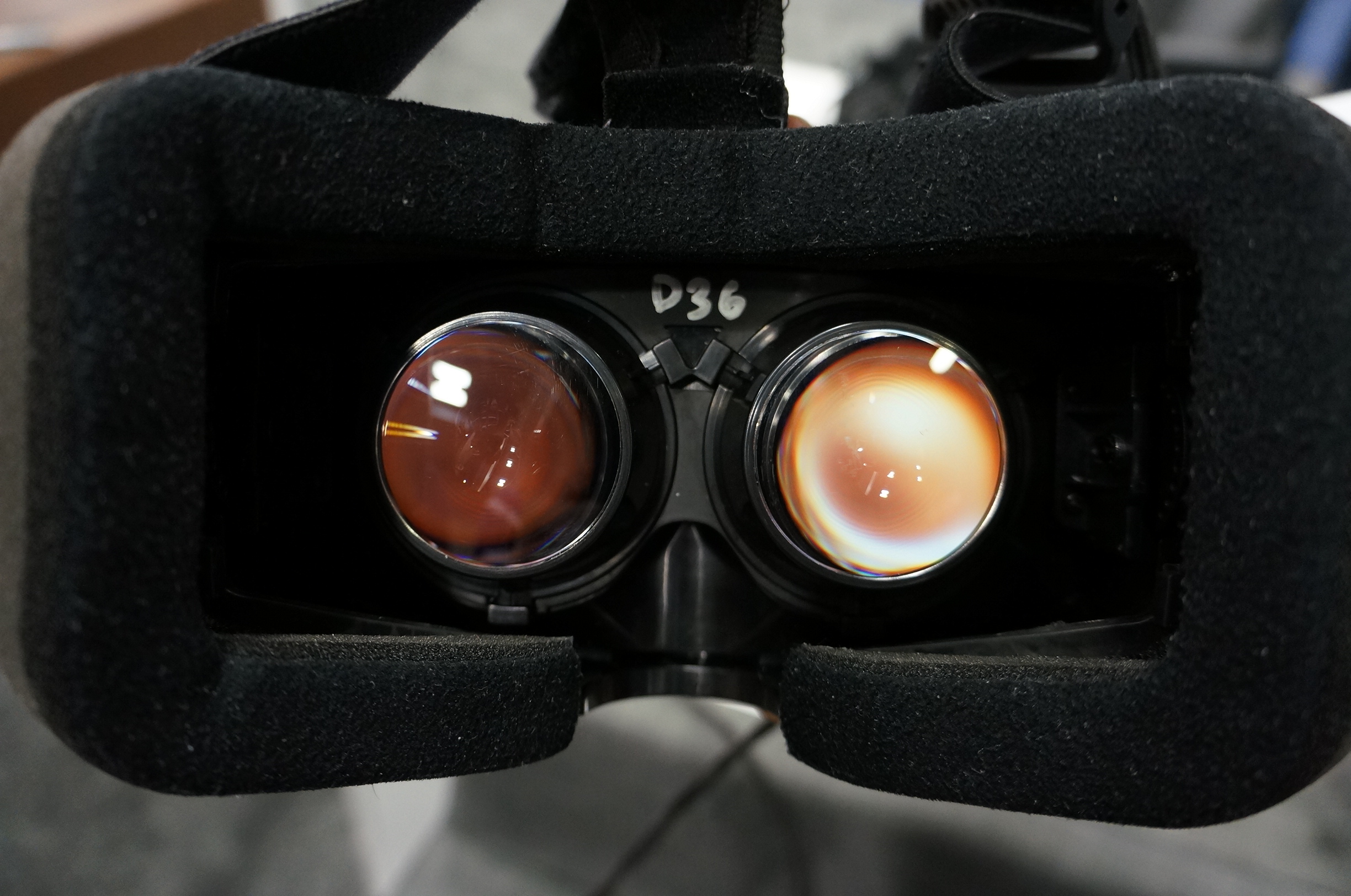5 Ways Facebook Could Use Oculus Rift
Here are some of the ways we think Facebook will use Oculus VR's technology.
Over the last few years, Facebook founder and CEO Mark Zuckerberg has shown us a great love of shopping. Specifically, he likes to spend a lot of money buying other very popular companies. The social network has bought no fewer than 13 companies in the last year alone. Though it was quite active in M&A before the fall of 2012, Facebook's $1 billion acquisition of Instagram back in October 2012 kicked off the major buying spree we've witnessed as of late. In February, Facebook acquired Whatsapp for $19 billion. Less than two months after his Facebook post regarding the WhatsApp purchase, Mark Zuckerberg updated his status to announce Facebook's acquisition of Oculus VR.
Reaction to the acquisition has been ... varied. While many see Facebook's $2 billion as a testament to the fact that VR technology has finally arrived, a very vocal set are mourning the Oculus VR we've become obsessed with over the last two years. What does this mean for VR gaming? Are we going to see a ton of ads, notifications, and VR FarmVille and MafiaWars on Oculus? Facebook is dishing out more than the GDP of San Merino (one of the world's wealthiest countries based on GDP per capita) for Oculus VR. Because the technology isn't yet available to the consumer market, it's hard to say definitively what this will mean for Oculus Rift. But Facebook's plans for the technology? Well, Zuckerberg believes Oculus is all about communication and connecting people. To that end, here are five ways we think his company could use Oculus VR's technology.
Read more: How Facebook's Oculus Buy Changes Future of Rift, VR
Face-to-Facebook
This one is obvious. Facebook is all about connecting people, and the young CEO obviously hopes to enhance the connected experience using virtual reality. On Tuesday, Zuckerberg described Oculus as 'a new communication platform' that will allow you to feel 'truly present' and share unbounded spaces, experiences, and adventures with the people in your life. Whether this means VR pokes, sharing your trips in a new and immersive way, or playing table top scrabble with your cousin across the world remains to be seen, but Facebook definitely wants to use Oculus for socializing as well as gaming.
Events
This is another one that Zuckerberg mentioned in the context of court-side seats at a sporting event. While it might be a while before you can attend a basketball game remotely, VR certainly has the ability to improve upon the concept of webcasts and live streams. We're already tuning into live events (like HTC's recent launch of the HTC One M8 or the streaming of Apple's iTunes festival), but sitting at home in front of your computer isn't the same as being there in person. Sure, you'll have access to the same information at the same time as real life attendees, but you're missing out on part of the experience. VR can't replace that in-person experience, but it will go a long way to bridging the gap for virtual attendees of events.
Education and Business
Organizations like the Khan Academy endeavor to deliver world class education to the world via free online educational materials, and VR technology could take that concept to the next level, offering students access to researchers, professors, consultants, and classes from all over the world. While this ties into events to some extent, often learning doesn't require you to be physically present, and yet the benefit of a more immersive experience is clear. Better for demonstrations, testing, class participation, and Q&As.
Read more: Oculus Rift Development Kit 2: Another Eyes-On
Get Tom's Hardware's best news and in-depth reviews, straight to your inbox.
Medicine
Here's one that Zuckerberg mentioned yesterday that we found really intriguing: Consultations with doctors. Much like the possibilities for education, Oculus has the potential to provide people around the world with access to medical professionals thousands of miles away. It's not going to work for anything requiring a physical examination, but doctors will be able to speak with patients "face to face" without being in the same room, something that could prove invaluable during times of outbreak or limited resources.
Nothing
This one is the most interesting and also the most likely for the near-term future. Facebook has acquired Oculus, and many people are worried that the idea they've fallen in love with will be abandoned for a poked-up, watered down, over-Liked social tool with no integrity. However, Mark Zuckerberg and Facebook have made a few things clear over the last 48 hours.
1) Gaming will be the first frontier in VR. While the folks at Facebook have big ideas for Oculus, they're not going to abandon the possibility of truly immersive gaming. In fact, Zuckerberg said that its other ideas for Oculus (education, healthcare, social interaction) will come after gaming.
2) The plans Oculus VR already has in place won't be changing. Facebook recognizes that the gaming community has been eagerly awaiting the arrival of Oculus Rift and it wants to focus on accelerating Oculus VR's current plans while helping to build out the product and develop partnerships.
3) Oculus will continue to operate independently within Facebook to achieve its current goals.
This doesn't mean Facebook is going to leave Oculus alone forever (though it's been a year and a half since Instagram was acquired and Facebook hasn't done much of anything with that). It does tell us that Facebook isn't the type of company to absorb other companies and technologies just to kill them or push its own version of a similar solution.
Above all else, it's extremely important to remember that while Oculus Rift has always been about gaming, that's not all the Oculus VR team had in mind while developing Rift. While at CES, we got a demo of Oculus Rift and played two different games using the technology. Those games were fun, but the technology itself was what had us positively giddy with excitement (seriously, Chris Angelini was giggling like a school girl over this thing). It was like nothing we'd ever seen before, and the Oculus team made it very clear that they recognized the potential for Rift outside of gaming. Online dating, virtual meetings and telecommuting were all named during our brief conversation on the topic. So while Facebook may not be Valve, its vision for VR technology is not miles away from what Oculus itself was talking about just three months ago.
Read more: Eyes-in with Project Morpheus vs. Oculus Rift
Follow Jane McEntegart @JaneMcEntegart. Follow us @tomshardware, on Facebook and on Google+.

Jane McEntegart is a writer, editor, and marketing communications professional with 17 years of experience in the technology industry. She has written about a wide range of technology topics, including smartphones, tablets, and game consoles. Her articles have been published in Tom's Guide, Tom's Hardware, MobileSyrup, and Edge Up.
-
g-unit1111 Farmville: Now with all the sights, sounds, and even smells of an actual farm! :lol:Reply -
clonazepam Oh it'll be fine.On a more humorous note:I'm gonna shave one leg, lay in bed, rub my legs together, and it'll feel like my dream woman is really there!!!Reply -
jankeke As much as I dislike FB, I really don't think the Occulus Rift is in some sort of danger of becoming what many fear.Some developers will devolop games, other wil develop social stuff and others will develop stuff no one even thought about. In that, nothing changes.And if with FB's $, the Occulus Rift comes to the consumer earlier (with the quality originally intended, of course), I can't say I'm against it.Reply -
nitrium Talking to each other via a Skype like tech obviously makes zero sense if BOTH participants are wearing the goggles - since you'd be looking at each other wearing said goggles. I'm not sure about you lot, but I prefer to look someone in the eyes when I'm talking to them - not with half their face covered by impenetrable goggles.Reply -
house70 Reply12980748 said:Talking to each other via a Skype like tech obviously makes zero sense if BOTH participants are wearing the goggles - since you'd be looking at each other wearing said goggles. I'm not sure about you lot, but I prefer to look someone in the eyes when I'm talking to them - not with half their face covered by impenetrable goggles.
+1000. Same goes for the so-called medical applications as described here, as well as the business ones; as long as the person's face is half-covered by these goggles any attempt to do a face-to-face is just as ridiculous as that poor Photoshop job in the first pic. -
Menigmand i'm one of the people who get a bad taste in the mouth seeing Facebook buy Oculus, but I find it a bit difficult to explain why. I think it's because I don't like everything to be interconnected - I want to keep my Facebook account and my gaming time separate. I don't want to be datamined while playing games. And I don't want ads or micropayments in my games.Reply


